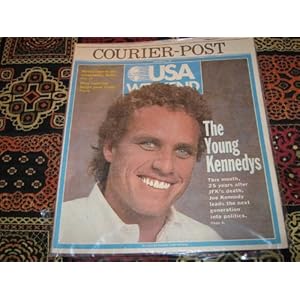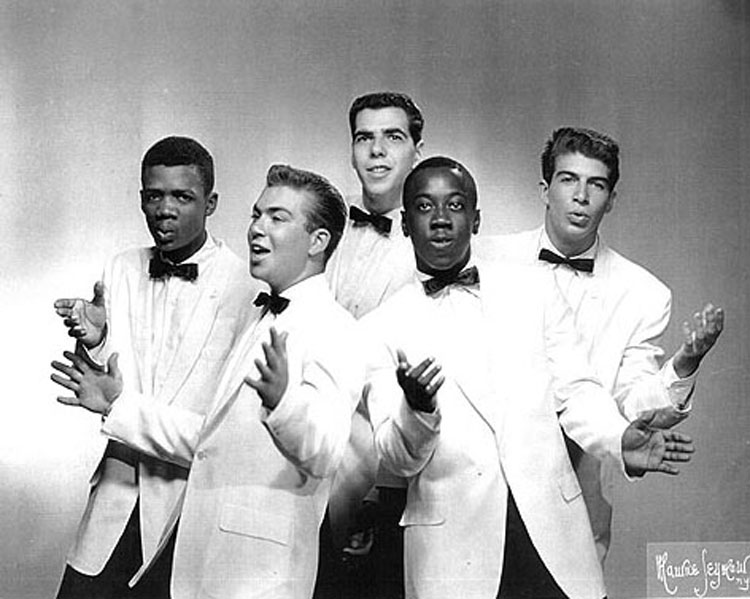
Only in court can one prove a negative, to wit, Michael Shakman :
Shakman filed suit against the Democratic Organization of Cook County, arguing that the patronage system put nonorganized candidates and their supporters at an illegal and unconstitutional disadvantage. Politicians could hire, fire, promote, transfer—in essence, punish—employees for not supporting the system, or more particularly, a certain politician. The suit also argued that political patronage wasted taxpayer money because public employees, while at work, would often be forced to campaign for political candidates.
In 1972, after an exhaustive court procedure and much negotiating, the parties reached an agreement prohibiting politically motivated firings, demotions, transfers, or other punishment of government employees. A 1979 ruling led to a court order in 1983 that made it unlawful to take any political factor into account in hiring public employees (with exceptions for positions such as policy making). Those decisions along with companion consent judgments—collectively called the Shakman decrees—are binding on more than 40 city and statewide offices. Encyclopedia of Chicago
N.B. - Here is a political bonbon doillyed and dropped by Dan Kelley on Progressives and Patronage:
Berny Stone relates a story about dealing with a (future) Progressive politician:
I was in charge of 8 precincts with guys like Dick Elrod and Howard Carroll. I made sure everything ran smoothly in their precincts. Dick Elrod ran for Alderman and lost. But then he ran for Sheriff and won. I worked for him when he was Sheriff. For two years prior to the special election (Stone succeeded 50th Ward Alderman Jack Sperling resigned when he was appointed to a judicial position) I was his Assistant Chief Deputy Sheriff and I handled all of the foreclosures of the office. At that time the amount of foreclosures that we had in one year we have now in a month. Dick asked me to take the job. We lived very close to each other. My specialty as a lawyer was real estate and he knew he could trust me.
In my opinion it was about picking a good qualified person. A young lawyer came to me who never handled foreclosure before so I helped him. I took him all the way through. Later I met him again when he became an Alderman, his name was Larry Bloom. I said Larry you rail against patronage but I was a patronage appointed employee and I helped you.
By what rules had the 11th Ward machine always lived? Now that Daley and company were out of power for the first time in half a century, were patronage hiring and firing no longer nice?
The Tribune wondered aloud, "How far will the 11th Ward carry its campaign for civic purity?" Suggesting that Daley embrace the Shakman ruling against political firings, the paper sneered, "Stranger things have happened, though we can't at the moment think of any."
But the strange thing did happen. Shortly before leaving office, Bernie Carey had agreed to sign a second Shakman decree. The original decree, signed by Carey in 1973, banned political firing; the new decree would ban political hiring as well. Soon after taking office, Daley became the first county official to sign the new decree. During the campaign--in which he had also come out in favor of merit selection of judges, a machine curse--he had pledged, "This office will be professional. I will not take a letter from any ward committeeman."
According to John Schmidt, who has served since 1980 on Daley's professional advisory committee, Daley has kept that pledge. Daley did have to settle a lawsuit brought by five former Carey employees whom he had fired (including Carey's brother-in-law); they had held policy-making positions exempted from Shakman restraints, but they contended that they had first been demoted to nonexempt positions, and then fired, so that the decree was violated. Daley has also hired some politicians not known for their professional skills, like former alderman and now state representative Miguel Santiago. However, the Shakman decree does not mandate that public officials hire only persons of consummate professional skill; it merely prohibits political hiring and firing of non-policy-making employees. And Daley has apparently never been found in violation of the Shakman decree.
*The term "toxic mold" is not accurate. While certain molds are toxigenic, meaning they can produce toxins (specifically mycotoxins), the molds themselves are not toxic, or poisonous. Hazards presented by molds that may produce mycotoxins should be considered the same as other common molds which can grow in your house. There is always a little mold everywhere - in the air and on many surfaces. There are very few reports that toxigenic molds found inside homes can cause unique or rare health conditions such as pulmonary hemorrhage or memory loss. These case reports are rare, and a causal link between the presence of the toxigenic mold and these conditions has not been proven.In 2004 the Institute of Medicine (IOM) found there was sufficient evidence to link indoor exposure to mold with upper respiratory tract symptoms, cough, and wheeze in otherwise healthy people; with asthma symptoms in people with asthma; and with hypersensitivity pneumonitis in individuals susceptible to that immune-mediated condition. The IOM also found limited or suggestive evidence linking indoor mold exposure and respiratory illness in otherwise healthy children. In 2009, the World Health Organization issued additional guidance, the WHO Guidelines for Indoor Air Quality: Dampness and Mould[PDF, 2.52 MB].
A common-sense approach should be used for any mold contamination existing inside buildings and homes. The common health concerns from molds include hay fever-like allergic symptoms. Certain individuals with chronic respiratory disease (chronic obstructive pulmonary disorder, asthma) may experience difficulty breathing. Individuals with immune suppression may be at increased risk for infection from molds. If you or your family members have these conditions, a qualified medical clinician should be consulted for diagnosis and treatment. For the most part, one should take routine measures to prevent mold growth in the home.




_01.jpg)




.JPG)



 The Young Gee. Flynt Taylor of Some Peoples Law Office defended fellow Brown University Alumnus Cleophus " Fastidious" Johnson against the charge of Throwing, Putting, Tossing, or Placing the said overalls in Mrs. Murphy's Chowder, since the 1960's.
The Young Gee. Flynt Taylor of Some Peoples Law Office defended fellow Brown University Alumnus Cleophus " Fastidious" Johnson against the charge of Throwing, Putting, Tossing, or Placing the said overalls in Mrs. Murphy's Chowder, since the 1960's.





